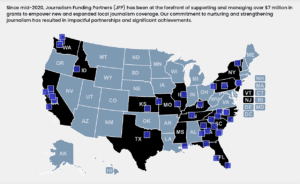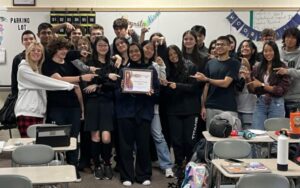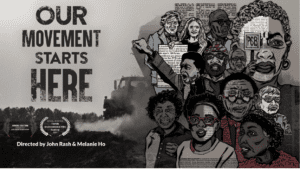Check out the full NC Local newsletter from August 19 for an update on the UNC Public Records Project, insights related to census reporting, news briefs about the news industry across the state, a list of who’s hiring among job postings on the Bulletin Board and more. Sign up to get NC Local in your inbox every Wednesday.
By Eric Frederick, NC Local Newsletter Editor
You probably know that Trusting News and the Center for Media Engagement partnered this year with 27 newsrooms, including Carolina Public Press, to learn more about how right-leaning Americans perceive local news, and how media can bridge a trust gap there.


- Build relationships with people who have conservative and right-leaning viewpoints in your community and listen to them.
- Include a variety of voices from people with conservative and right-leaning views in stories. Journalists should be cautious of using “conservative” or other terms as catch-all labels for people who may have very different beliefs.
- Consider diversity of political beliefs and backgrounds when hiring for the newsroom.
- Focus on story facts, not interpretation.
- Correct mistakes promptly to demonstrate trustworthiness.
- Don’t criticize only one side of an issue.
I asked Wilkie for his thoughts about the process. While he’s not as sanguine about the effort as its organizers are, he said he and his CPP colleagues want to keep working with Trusting News.
“While I found this initial report a bit underwhelming, it is a step in the right direction,” he told me, “and building on this work is how we get to more meaningful answers and analysis of how newsrooms can build trust across widely divergent audiences. That’s important for our bottom lines and for democracy.”
- The results of this study of conservatism and the news can be generalized to pretty much all interest groups and the news.
- Some of the solutions don’t make sense … I doubt very much that any newsroom (not opinion) would want to advertise that they are looking to hire a conservative reporter, especially as that would likely shatter any other claims of objectivity that news outlet would be trying to make.
- (Someone) I interviewed was quoted in the report as criticizing newsrooms for only covering one side of an issue. What the report does not mention is the rest of that conversation. I was confused by my source’s observation, because I had seen a lot of coverage and criticism of the very same issue he claimed that liberal media did not cover. In digging further into the issue, I learned that he got most of his news through social media and sharing links among friends. Though his criticisms, largely of national news outlets, had some merit, they were also heavily influenced by selection bias on the consumer’s end. That’s a problem that local news outlets cannot solve on their own.
- People are profoundly ignorant of the news process. This isn’t just conservatives. It is everybody. … Widespread news literacy would go a long way in helping solve this problem, but given that we as a nation can barely manage to teach basic civics, I won’t hold my breath for our education system to pull through any time soon. That leaves the burden on newsrooms to explain themselves, which is a strain on resources.
Read Wilkie’s takeaways.




